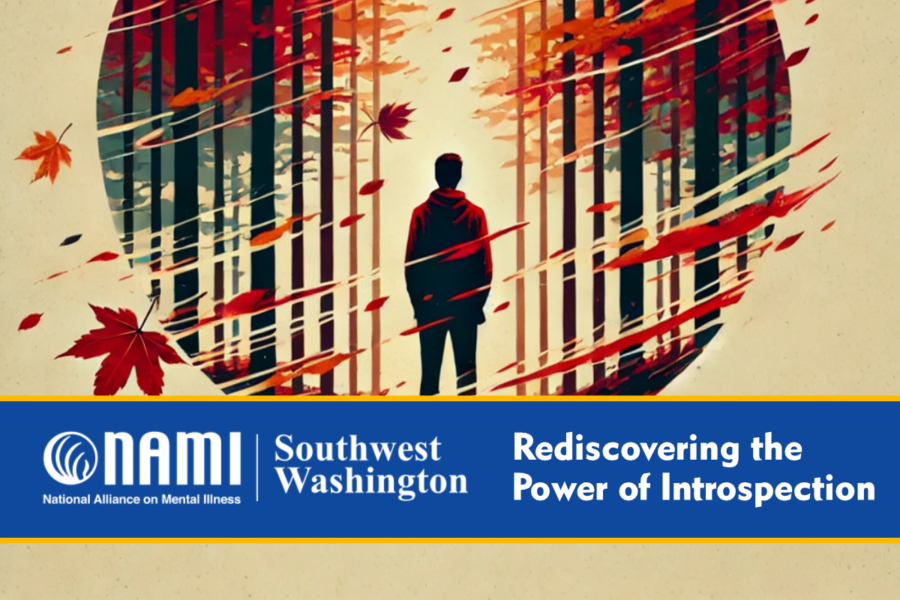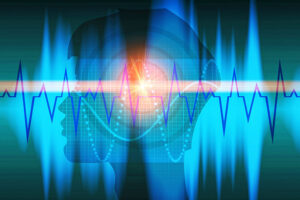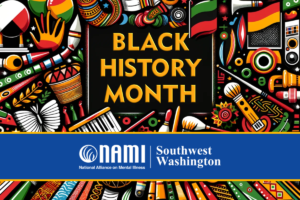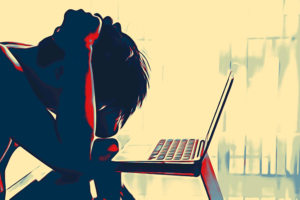Self-Awareness Month, celebrated every August, is a time to reflect on the importance of understanding ourselves—our emotions, our thoughts, and our reactions to the world around us. For me, self-awareness has been both a lifeline and a challenge. Growing up in a tumultuous household, I learned early on the importance of introspection, yet I also experienced what happens when you drift away from that vital practice.
My step-father, a disabled Vietnam Veteran, was my father figure from the age of four. He was a man shaped by war, burdened by severe PTSD, cluster headaches, and a host of other medical issues that made him volatile. His mood swings could be drastic and, at times, terrifying. While I learned a great deal from him about the world, his unpredictable behavior made my childhood a precarious balancing act. The volatility at home was compounded by the bullying I faced at school and even from my brothers. I often felt like I had no safe space to turn to—except for one.
The woods became my sanctuary. Among the trees, the rustling leaves, and the quiet sounds of nature, I found a rare peace. I would sit alone, sometimes for hours, reflecting on my daily experiences, trying to make sense of them. These moments of silent reflection, what I came to call “introspection,” became my way of coping with the chaos around me. It was in these solitary moments that I developed a habit of checking in with myself—assessing how I was feeling and why. For everything I was feeling, there must be a reason, and I was determined to figure it out. It was a simple practice, but it helped me recover from daily challenges and gave me a sense of resilience that was otherwise lacking in my life.
But as I grew older, life got busier. The teenage years brought the distractions of social life, relationships, and the grind of daily responsibilities. Slowly, I drifted away from my practice of regular introspection. The safe space I had built in my mind faded as I became more focused on escaping my feelings rather than confronting them. I turned to sex, alcohol, and various drugs as coping mechanisms, using them to numb the sense of isolation that had grown within me. I compartmentalized my negative experiences, shoving them aside instead of dealing with them head on.
By the time I reached 35, I was in a dark place. The weight of two decades of unaddressed emotions, unresolved trauma, and neglected self-awareness had taken its toll. I felt disconnected from myself, from the world, and from the peace I once found so easily in the woods.
It was during this time of great suffering that I stumbled upon a memory—sitting in the woods, listening to the wind, the rain, the animals, and the bugs around me. I remembered what it felt like to be in tune with my thoughts, to reflect on my experiences and make sense of them. It was a memory that sparked something deep within me, and I knew I had to find my way back.
I made some significant changes. I turned off my social media, stopped reading the news every day, and began to carve out time for myself again—time to just think, to check in with myself, and to reflect on my experiences. It was like rediscovering an old friend, one who had been waiting patiently for me to return.
This renewed practice of introspection wasn’t easy. I had a lot of work to do, unpacking years of buried emotions and unresolved issues. But for the first time in a long time, I felt resilient again. I was able to make sense of my world, to process my experiences rather than running from them. It was a long road, but now I had a path forward.
As we observe Self-Awareness Month this August, I encourage you to take up the practice of regular self-check-ins. Set aside a few moments each day to pause, reflect, and ask yourself how you’re feeling and why. These brief moments of introspection can help you stay attuned to your emotional state, catch negative patterns early, and develop more adaptive coping strategies. Whether you find your peace in the woods, in a quiet room, or even just in the few minutes before you fall asleep, give yourself the gift of self-awareness. It’s a simple yet powerful practice that can transform your mental health and well-being, just as it did for me.




